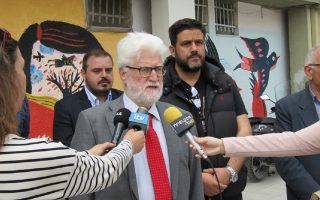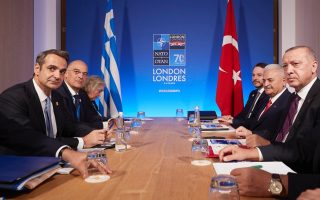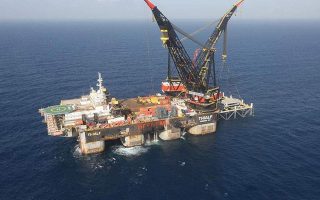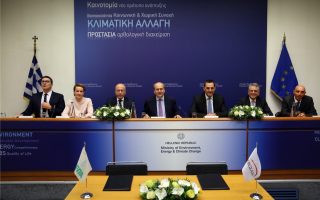Mitsotakis spoke, but was Trump listening?
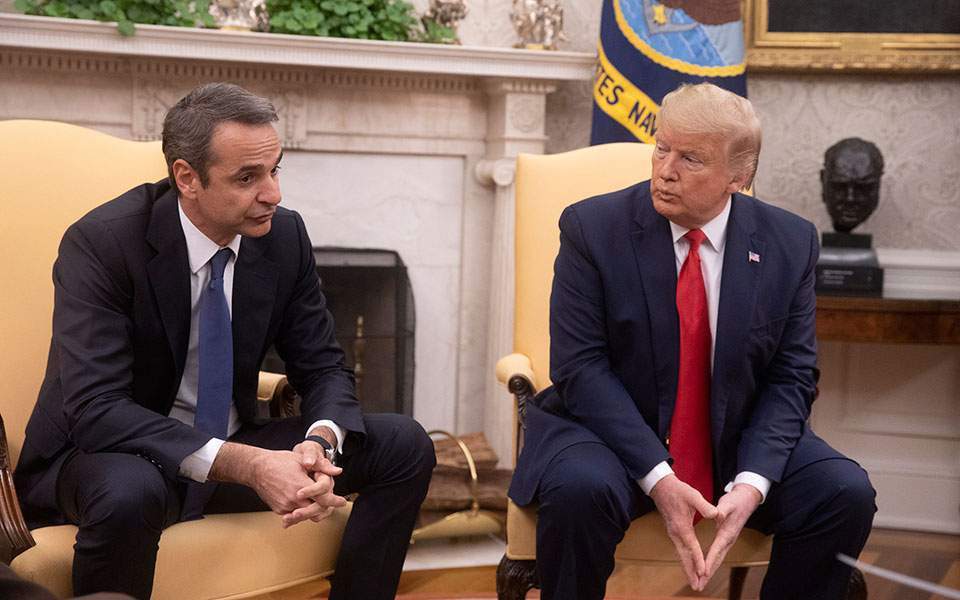
Prime Minister Kyriakos Mitsotakis conveyed Greece’s concerns about Turkish activities in the Eastern Mediterranean during his visit to the White House on Tuesday, both in person to US President Donald Trump during the meeting of the two delegations and publicly in front of the cameras, but he did not get the response he expected.
This is not surprising, especially given the “special relationship” between Trump and Turkish strongman Recep Tayyip Erdogan, whose behavior the American president not only tolerates but even appears to admire at times.
During their joint statements to the press at the Oval Office, the prime minister repeatedly tried to present Greece’s positions and to intervene where he could, but the attempt to ensure public US support against Turkish transgressions did not seem to find any favor with Trump.
The American president’s unwillingness to appear critical of Turkey limits the likelihood of a US intervention at the highest level that would be in Greece’s favor in the East Mediterranean geopolitical equation. In this regard, the visit to the White House did not yield the expected results. However, it did provide the opportunity for a face-to-face meeting with the superpower’s leader and to present Greece’s concerns to the White House foreign policymaking establishment.
After the meeting a US official said that the two leaders had a fantastic rapport, saw eye to eye on almost all issues – though not, obviously, on some that are very important to Athens – acknowledged Greece’s evolution into an energy hub, and welcomed its intention to buy American military equipment.
Greece and Cyprus did get active bipartisan support in Congress, partly as a result of their cooperation with Israel. The US foreign policy establishment – National Security Council, State Department, Pentagon, think tanks etc – has had a much more favorable view of Greece in recent years, something that Mitsotakis has helped strengthen.
At the same time, American policymakers are also growing increasingly frustrated with Ankara, including over its deal with Libya’s Tripoli-based government. They are exercising restraint, however, because they don’t want to see a country the size of Turkey, with its important geographical location, drifting further away from the West and becoming a “new Pakistan.”
The main conclusion on the diplomatic front from Tuesday’s meeting is that, despite the State Department’s concerns about Turkish moves in Libya and in Cyprus’ exclusive economic zone, and despite the reactions and resolutions critical of Turkey passed by Congress, Trump is still a powerful supporter of Erdogan. And this is a parameter that Greece needs to consider seriously when making its plans for the “day after.”
Nevertheless, the opposition’s claims that the meeting was an unmitigated fiasco are not justified. Trump was not dismissive of Mitsotakis personally. Instead he seemed not to align himself with Greece’s objections about Turkey. Given the timing and the crisis with Iran, Mitsotakis cannot be accused of not taking full advantage of the Oval Office remarks, because the American president was, naturally, bombarded with, and had to respond to, so many questions concerning Iran and his impeachment.
